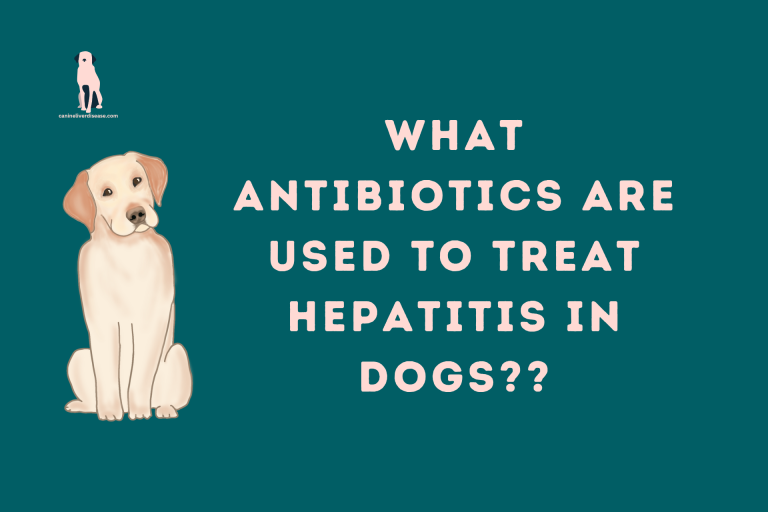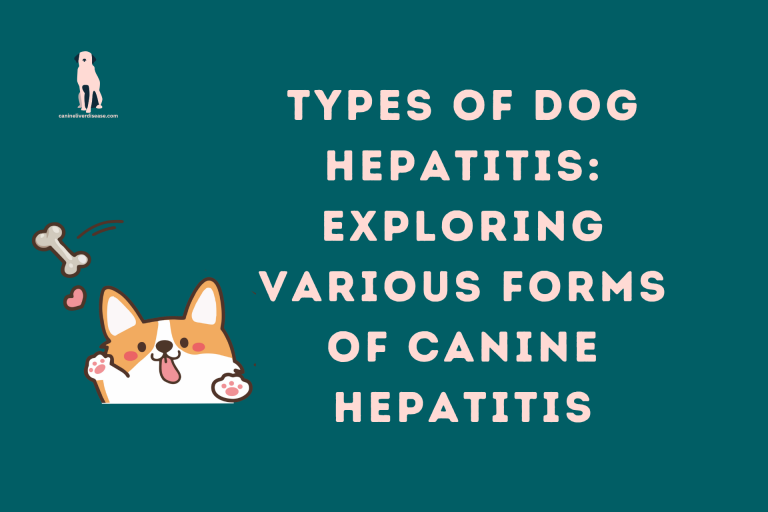Can Hepatitis In Dogs Be Cured?
Quick Answer: Hepatitis in dogs can’t always be fully cured, but it can often be managed with treatment.
When it comes to our furry companions, their health is a top priority. One of the concerns that pet owners may face is hepatitis in dogs. But can hepatitis in dogs be cured? This informative article will delve into the world of canine liver health, exploring chronic hepatitis, infectious canine hepatitis, and the possibilities of finding a cure.
What is Hepatitis? (Understanding Hepatitis in Dogs)
Hepatitis in dogs, simply put, is an inflammation of the liver. This vital organ plays a crucial role in various bodily functions, and when it’s compromised, it can lead to severe health issues. There are different forms of hepatitis in dogs, including chronic hepatitis and infectious canine hepatitis.
Chronic Hepatitis in Dogs
Chronic hepatitis is a long-term liver condition that can affect dogs. It’s essential to differentiate it from acute hepatitis, which is a sudden and severe inflammation of the liver. Chronic hepatitis often progresses slowly, making early detection and intervention critical.
Infectious Canine Hepatitis
Infectious canine hepatitis is another form of hepatitis in dogs. This disease is caused by canine adenovirus and primarily affects the liver and kidneys. It can lead to various clinical signs, including an enlarged liver and a condition known as “blue eye.”
Canine Hepatitis: The Cure Quest
Pet owners facing the daunting diagnosis of hepatitis in their dogs often wonder if a cure is possible. While the road to recovery can be challenging, several aspects must be considered.
Treatment Options
Treating hepatitis in dogs typically involves a combination of medical interventions and lifestyle adjustments. These may include:
- Medications: Your veterinarian may prescribe medications to reduce liver inflammation and support liver function.
- Special Diet: A carefully planned diet can help alleviate the strain on the liver and promote healing.
- Monitoring: Regular check-ups and monitoring of liver enzymes are crucial to track progress and adjust the treatment plan accordingly.
The Role of Early Detection
Early detection of hepatitis is paramount in increasing the chances of a successful treatment outcome. Routine veterinary visits and awareness of common clinical signs such as lethargy, loss of appetite, and jaundice can make a significant difference.
The Importance of a Caring Approach
As pet owners, it’s natural to feel concerned and even urgent when our dogs are unwell. However, it’s equally vital to approach the situation with care and reassurance. Stress can exacerbate liver problems, so creating a calm and supportive environment is essential during treatment.
FAQs About Canine Hepatitis
Q1: Is hepatitis in dogs contagious?
A1: Hepatitis in dogs caused by canine adenovirus is contagious, but the severity of the disease can vary. It’s essential to keep infected dogs isolated to prevent the spread of the virus.
Q2: Can chronic hepatitis in dogs be reversed?
A2: While chronic hepatitis cannot always be fully reversed, early diagnosis and appropriate treatment can help manage the condition and improve the dog’s quality of life.
Q3: What are the common clinical signs of hepatitis in dogs?
A3: Common clinical signs include lethargy, loss of appetite, vomiting, diarrhea, jaundice (yellowing of the skin and eyes), and an enlarged abdomen.
Q4: Can I prevent hepatitis in my dog?
A4: Vaccination against infectious canine hepatitis is available and can significantly reduce the risk of infection. Additionally, a healthy diet and regular veterinary check-ups can help maintain liver health.
Conclusion
In conclusion, hepatitis in dogs is a serious condition that requires careful attention and treatment. While a complete cure may not always be possible, timely intervention, a caring approach, and proper medical care can significantly impact your furry friend’s life. Remember, as a responsible pet owner, staying informed and proactive is key to ensuring the well-being of your canine companion.







